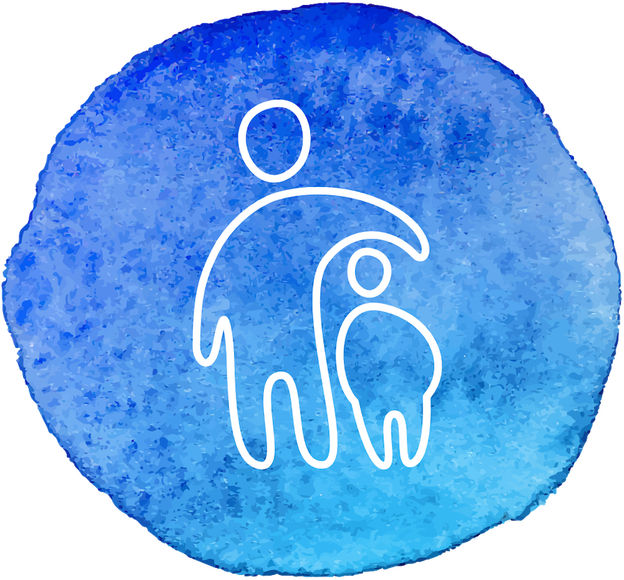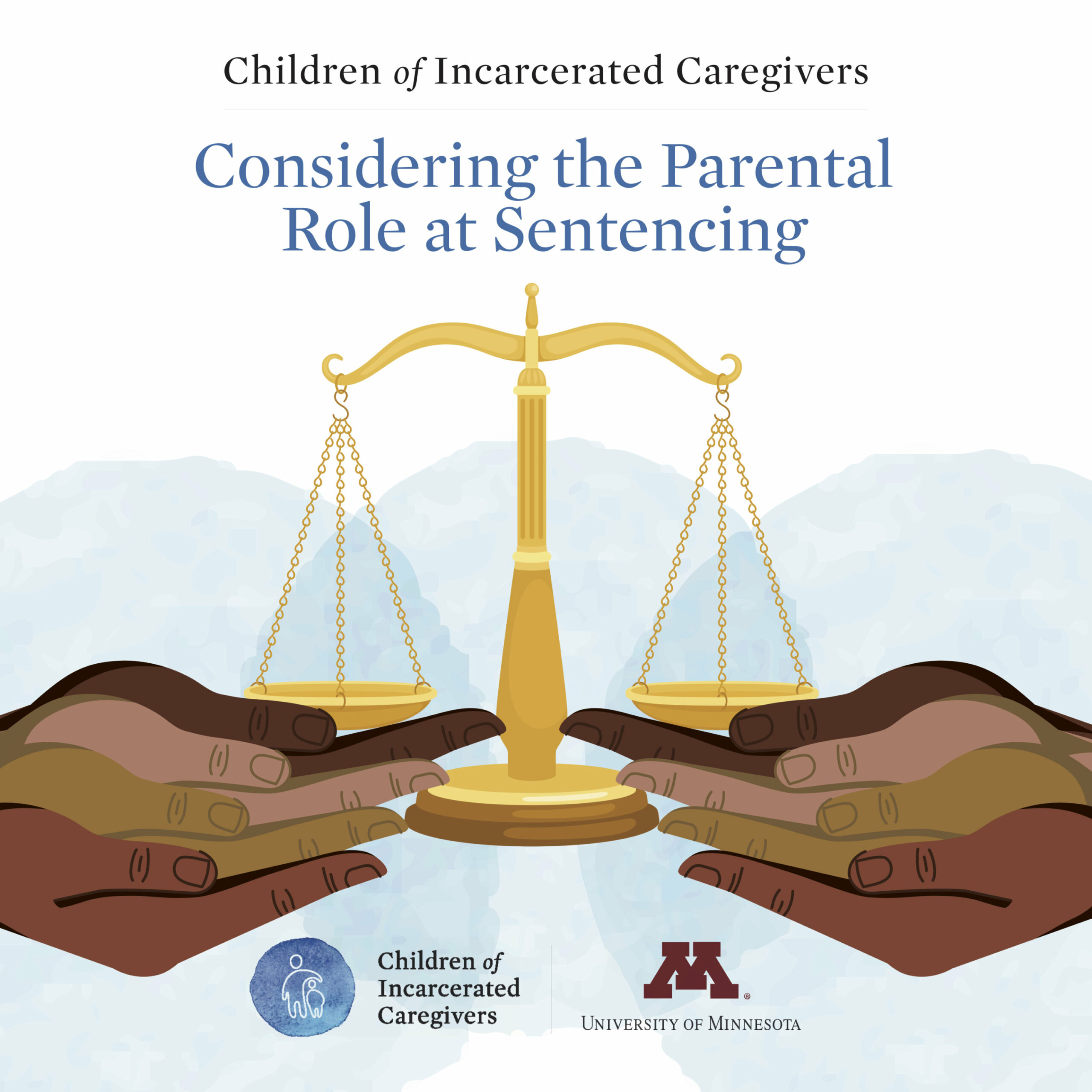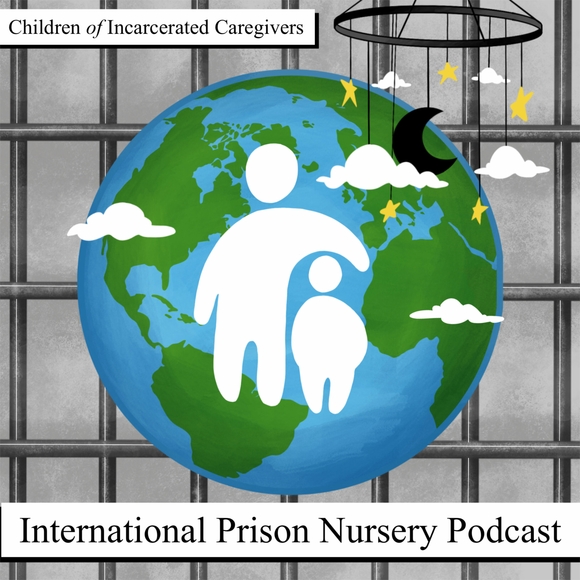Children of Incarcerated Caregivers

The Human Rights Program (HRP) has been a close collaborator with non-profit organization Children of Incarcerated Caregivers (CIC) since it was established in 2015. CIC works to improve the lives of children whose primary caregivers are incarcerated in the United States and abroad and is committed to providing students a unique opportunity to do in-depth research, network, and to advocate in meaningful ways to contribute to this goal. HRP Director Barbara Frey was an original CIC Advisory Board Member and continues to serve on that board today. Each spring, the Global Studies department offers a Human Rights internship class, in which a student from completes an internship with CIC. Interns often focus on framing parental incarceration as an international human rights issue. Furthermore, lawyers can receive Minnesota CLE credits for listening to the podcasts.
HRP and CIC look forward to their continued collaboration in bringing awareness to the impact on children when a parent is incarcerated.
CLE Podcast: Considering the Parental Role at Sentencing

Children of Incarcerated Caregivers (CIC) and the University of Minnesota Human Rights Program present a six-part podcast on parental incarceration. In each episode, public defender Michael Holland interviews a different expert to explore how and why lawyers and judges should consider the best interests of the child during a caregiver’s sentencing hearing.
Barbara Frey and HRP have also been integrally involved in the podcast CIC created to encourage lawyers and judges to consider the parent-child relationship before a parent is sentenced in a criminal court proceeding.
Lawyers can receive continuing legal education (CLE) credits by listening to this podcast series. More information can be found under each episode.
Episodes are available to listen to through CIC's website, Spotify, Apple, and Google.
Episode 1: Families and Federal Sentencing
Why is it important to raise family circumstances in federal court sentencing proceedings? Dulce Foster, white collar criminal defense attorney and CIC Advisory Board member, joins host Michael Holland to tackle that question. She discusses the post-Booker consideration of parent-child relationships as a basis for a downward variance from federal sentencing guidelines and outlines key cases.
Listen to Episode 1 and see more information at CIC's website.
You can also listen to Episode 1 on these services:
Episode 2: Parental Incarceration and Human Rights
This week, we’re joined by Barbara Frey: lawyer, CIC Advisory Board member, and Director of the University of Minnesota Human Rights Program. She explains the significance of parental incarceration as a human rights issue, highlighting recommendations from international governing bodies whose courts consider the best interests of the child at every sentencing of a parent.
Listen to Episode 2 and see more information at CIC's website.
You can also listen to Episode 2 on these services:
Episode 3: Considering Collateral Consequences
Could restorative justice be the key to solving parental incarceration? Ethan Scrivner, Assistant City Attorney for the City of Duluth, joins our podcast this week to answer that question. He and Michael discuss the important role of the prosecutor in sentencing hearings and best practices for raising the collateral consequences of parental incarceration with a prosecutor before sentencing. They also examine the use of community-based alternatives to prison or jail.
Listen to Episode 3 and see more information at CIC's website.
You can also listen to Episode 3 on these services:
Episode 4: Harms of Parental Incarceration
Michael is joined by Rebecca Shlafer, PhD, MPH, Assistant Professor in General Pediatrics and Adolescent Health at the University of Minnesota. They discuss parental incarceration as an ACE (Adverse Childhood Experience) that affects youth outcomes. They also consider how research on the harms of parental incarceration, as well as harms facing the children of a particular defendant, can be brought to the attention of the sentencing judge.
Listen to Episode 4 and see more information at CIC's website.
You can also listen to Episode 4 on these services:
Episode 5: Minnesota Law on Sentencing
Parental incarceration is an international issue, but this week, we focus on CIC’s home state. Mike is joined by Judge Mark Wernick, retired Hennepin County District Court judge and former member of the Minnesota Sentencing Guidelines Commission to discuss raising family circumstances in Minnesota sentencing proceedings. Judge Wernick explains how Minnesota judges can consider the parent-child relationship at sentencing, highlighting relevant portions of the Minnesota Sentencing Guidelines and Minnesota case law. They also discuss the use of family impact statements to inform judges about family circumstances prior to sentencing hearings.
Listen to Episode 5 and see more information at CIC's website.
You can also listen to Episode 5 on these services:
Episode 6: Practice Points for Downward Departure
Margaret Hinson was a CIC intern back in 2018 and is now a third-year J.D. Candidate at the University of California-Irvine School of Law. She comes on our podcast to review the previous five episodes and to provide suggestions for incorporating their salient points into a motion for a downward departure in a hypothetical Minnesota case.
Listen to Episode 6 and see more information at CIC's website.
You can also listen to Episode 6 on these services:
Prison Nursery Project
CIC’s Prison Nursery Project examines the use of prison nurseries as an alternative to caregiver separation due to incarceration. CIC researches prison nurseries worldwide to identify and consider the risks, benefits, best practices, and alternatives to having children live with a parent while that parent is incarcerated. The aim is to promote the best interests of children in connection with placement in a prison nursery or alternative setting. This project includes the International Prison Nursery Podcast, Country Reports, and an annual Prison Nursery Network meeting.
International Prison Nursery Podcast

In the International Prison Nursery Podcast, Barbara Frey and Paul Dosh speak with guests from around the world in an attempt to understand the varying perspectives surrounding the use of prison nurseries as an alternative to caregiver and child separation due to incarceration. By gaining insight into the experiences and perspectives of those involved with prison nurseries, CIC hopes to identify the risks, benefits, and alternatives to prison nurseries while pushing for more awareness on how to consider the best interests of children during parental sentencing and incarceration.
In recent years, Human Rights Program interns have assisted with the development of a podcast on prison nurseries; programs within correctional institutions where children live with an incarcerated parent. Through this podcast, HRP and CIC hope to generate more awareness of prison nursery programs and promote thoughtful consideration of whether these programs serve the best interests of children.
Listen to the trailer here.
Episodes are available to listen to through CIC's website, Spotify, and Apple.
(Episode 1) Mexico: Prison Conditions Call for State Accountability with Dr. Elena Azaola
In this episode, Barbara Frey speaks with Doctor Elena Azaola, an anthropologist and psychoanalyst who specializes in Mexico’s politics of security. Her research focuses on youth impacted by Mexico’s criminal legal system, children and adolescents affected by widespread violence, and women deprived of liberty. Through these lenses, Dr. Azaola explains the considerations that should be taken into account when advocating for the best interests of children accompanying a parent into the prison system. She discusses the issues faced by Mexico’s prisons—such as overcrowding, lack of resources, and ineffective separation of incarcerated men and women—and weighs these conditions against the act of separating a young child from an incarcerated parent. By evaluating these circumstances while respecting the familial bonds between parent and child, Dr. Azaola sheds valuable light on parental incarceration in Mexico.
Listen to Episode 1 and see more information at CIC's website.
You can also listen to Episode 1 on these services:
(Episode 2) United States: Addressing the Core Needs of Both Child and Mother with Dr. Lorie Goshin
In this episode, Paul Dosh sits down with Doctor Lorie Goshin, a nurse and associate professor at Hunter College Bellevue School of Nursing with a Ph.D. in nursing research. Dr. Goshin describes what prison nurseries look like in the United States and delves into the structure, operation, and conduct of such institutions. She specifically focuses on Bedford Hills Correctional Facility for Women in New York, which holds the nation’s oldest prison nursery and is currently led by the nonprofit organization Hour Children. She also details her research with Columbia University professor Mary Byrne, which focuses on the effects prison nurseries have on early child development and attachment security. Dr. Goshin frames this discussion within the achievements and possible reforms of the prison nursery system in order to fulfill the best interests of not only the child, but the mother as well.
Listen to Episode 2 and see more information at CIC's website.
You can also listen to Episode 2 on these services:
(Episode 3) New Zealand: Dr. Jacqui Johnson on the Spatial, Temporal, and Social Contradictions within Mothers with Babies Units
Joining Barbara Frey is Doctor Jacqui Johnson, a family response violence specialist at Oranga Tamariki—New Zealand’s Ministry for Children. In this episode, Dr. Johnson discusses her Ph.D. research on “Monitored Mothering,” an ethnographic study on the experiences of mothers who parent in New Zealand’s Mothers with Babies Units, or MBUs. She describes the social, temporal, and spatial environment of the unit with a focus on impacts on the child and on the mother-child relationship. Exploring the dual roles held by prison custodial staff, mothers, and the unit itself, Dr. Johnson outlines the nuances and contradictions that arise when nursery programs take place in correctional facilities.
Listen to Episode 3 and see more information at CIC's website.
You can also listen to Episode 3 on these services:
(Episode 4) United States: Model Programming and Building Community at Bedford Hills Prison Nursery with Jane Silfen
In this episode, Paul Dosh speaks with Jane Silfen, the Director of Programs for Hour Children, a nonprofit organization that supports current and previously incarcerated women through educational, vocational, and family-oriented programs. Silfen leads the mother-child care initiatives at Bedford Hills Correctional Facility for Women in New York, which has the nation’s oldest prison nursery program. She describes the prison nursery’s rich history and the core values it was founded on, as well as how its initial mission has taken shape through the program’s accommodations and specialized services such as doulas, lactation consultants, and a full-time on-site manager. Finally, she describes the tactics that Hour Children utilizes to connect incarcerated women with their older children in order to strengthen the bonds of all types of families impacted by incarceration.
Listen to Episode 4 and see more information at CIC's website.
You can also listen to Episode 4 on these services:
(Episode 5) Kenya: Investing in the Reintegration of Women and Children with Terry Nyaoro of Clean Start Kenya
Joining Paul Dosh is Terry Nyaoro (aka Terry Bii), Program Officer at Clean Start Kenya, a Narobi-based organization that aids justice-impacted women and children with reintegration support. Nyaoro details the history of Clean Start, emphasizing the impact the founder’s experience with incarceration has had on the organization’s mission and programming. Drawing on the post-release challenges many women face, Nyaoro describes the psychosocial and economic programming offered to promote self-sufficiency among women. Transitioning to a focus on children, Nyaoro discusses the circumstances of those living in Kenyan prisons and the work Clean Start has done in this area, such as responsive caregiving, a childcare framework within the prisons, and policy advocacy. Underscoring the importance of ongoing conversations on the impacts of incarceration, Nyaoro outlines the organization’s future goals and how listeners can get involved with Clean Start.
Listen to Episode 5 and see more information at CIC's website.
You can also listen to Episode 5 on these services: